We are proud to announce these five books debuting in April.
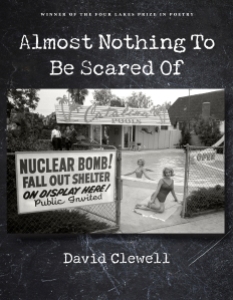 April 1
April 1
Almost Nothing to Be Scared Of
David Clewell
Winner of the Four Lakes Prize in Poetry
Almost Nothing to Be Scared Of
“David Clewell has a lot to say, peppering his essayistic poems with lopsided wit and keen observations on the spectacle of American culture. His social commentary deserves a gang of listeners for the truth of his insights and the sheer fun of the delivery. By the way, did you know that the Inverted Atomic Drop was a wrestling move?”
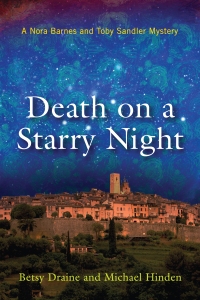
April 5
Death on a Starry Night
Betsy Draine and Michael Hinden
Death on a Starry Night is a romp through French art, fine wine, romance, and murder. This is the third novel in the Nora Barnes and Toby Sandler mystery series, as these artful sleuths investigate the mysterious death of Vincent van Gogh. “Thoroughly engaging. Draine and Hinden’s eccentric and amiable characters (one of whom happens to be a murderer) gather together to share delicious meals, amble through medieval villages, and argue about van Gogh’s art, life, and mysterious death in this charming whodunit.”—M. L. Longworth, author of The Mystery of the Lost Cézanne

April 12
Virgil and Joyce
Nationalism and Imperialism in the Aeneid and Ulysses
Randall J. Pogorzelski
Virgil and Joyce illuminates how James Joyce’s Ulysses was influenced not just by Homer’s Odyssey but by Virgil’s Aeneid, as both authors confronted issues of nationalism, colonialism, and political violence, whether in imperial Rome or revolutionary Ireland. “Joyce emerges here as a literary reader who rethinks Virgil’s Aeneid as a post-imperial epic, a poem about colonialism and national identity.”—Phiroze Vasunia, author of The Classics and Colonial India
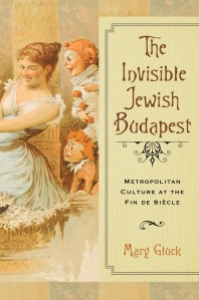
April 19
The Invisible Jewish Budapest
Metropolitan Culture at the Fin de Siècle
Mary Gluck
The Invisible Jewish Budapest is a groundbreaking, brilliant urban history of a Central European metropolis in the decades before World War I. “A magnificently consequential book. Gluck examines the vibrant modernist culture created largely by secular Jews in Budapest, in counterpoint to a backward-looking, nationalistic Hungarian establishment and a conservative Jewish religious elite.”—Scott Spector, author of Violent Sensations
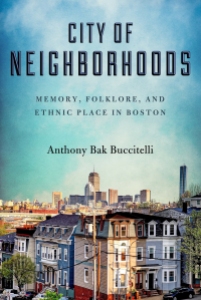 April 26
April 26
City of Neighborhoods
Memory, Folklore, and Ethnic Place in Boston
Anthony Bak Buccitelli
City of Neighborhoods “This fascinating deep-dive into historically ethnic neighborhoods reveals that old stereotypes have been supplanted by vibrant, multiethnic neighborhoods that now use ethnicity as a means for inclusion. A riveting, insider look into what really happens in Boston’s diverse neighborhoods.”—Timothy Tangherlini, UCLA
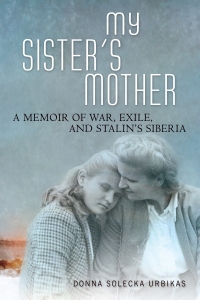
April 27
My Sister’s Mother
A Memoir of War, Exile, and Stalin’s Siberia
Donna Solecka Urbikas
My Sister’s Mother is an American baby boomer’s account of the ordeals of her Polish mother and half sister as slave laborers in Siberia who escaped and survived. “This stunning, heartfelt memoir looks unflinchingly at the scars borne by one Polish immigrant family as their daughter tries to become a normal American girl in Chicago. A gripping study of family dynamics, this is also a must-read for World War II history buffs.”—Leonard Kniffel, author of A Polish Son in the Motherland


